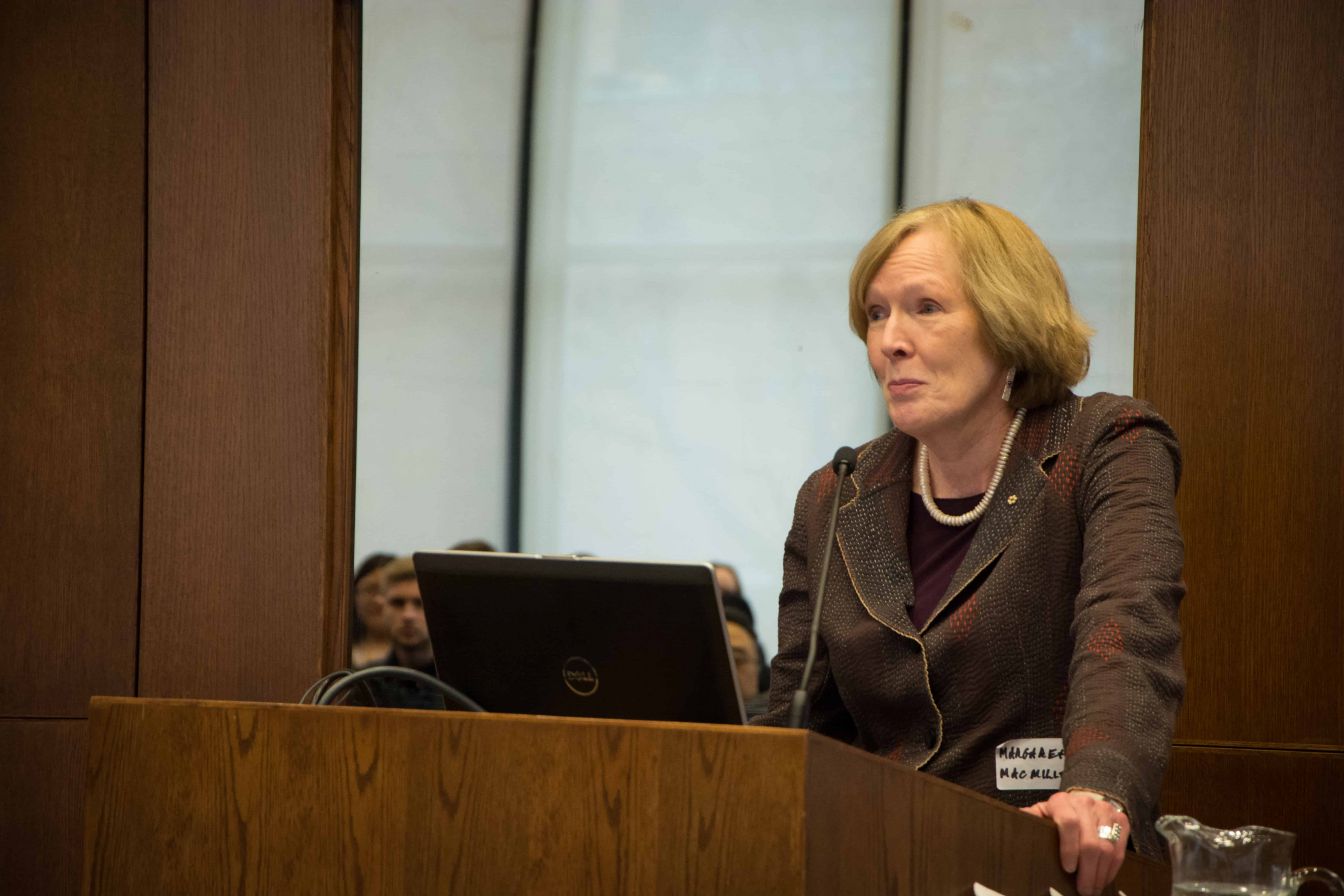More than 100 students, alumni, and academics filled the Vivian and David Campbell Conference Facility at the Munk School of Global Affairs on Saturday, January 17 to hear academics in history, near and Middle Eastern civilizations, East Asian studies, and international relations discuss the global impacts of the Second World War..
The conference, organized in partnership by the History Students’ Association (HSA) and Munk School of Global Affairs, titled “A War Second to None: The Global Impact of World War Two,” covered topics ranging from Canadian relations in Europe to anti-colonial nationalism in the Arab world and Central Africa’s contribution to the French war effort.
“[T]he geographical format of the conference… allows for students to go beyond their discipline,” says conference director Haley O’Shaughnessy, adding that the conference provided a means to “engage students in many different topics around one central theme.”
The conference kicked off with an address from prominent historian Margaret MacMillan, which gave an overview of the war from the Paris Peace Conference in 1919 to the Yalta and Potsdam Conferences in 1945.
MacMillan, who previously served as the Trinity College provost, emphasized the importance of focusing on global aspects of the Second World War, which she argued are often insufficiently studied.
MacMillan also highlighted some key moments in the interwar years, emphasizing that they were a time when international order and cooperation did exist. She quoted historian Zara Steiner in saying that the interwar years, specifically those surrounding the Great Depression, were “the hinge years.”
MacMillan, who currently serves as Warden of St. Antony’s College at the University of Oxford, noted in her keynote address that society has a tendency to simplify the war into one that simply consisted of a good side and a bad side.
Conferences like this one, MacMillan added, “are a great way of exchanging ideas and sparking new ones.”
MacMillan’s keynote address was followed by three panel discussions on the Asia-Pacific, North Africa and the Middle East, and Eastern and Western Europe.
O’Shaughnessy says she was thrilled with the turnout and hopes the event will mark the first of many conferences organized by the HSA.
The HSA published a special issue of its journal, The Future of History, alongside the conference.


